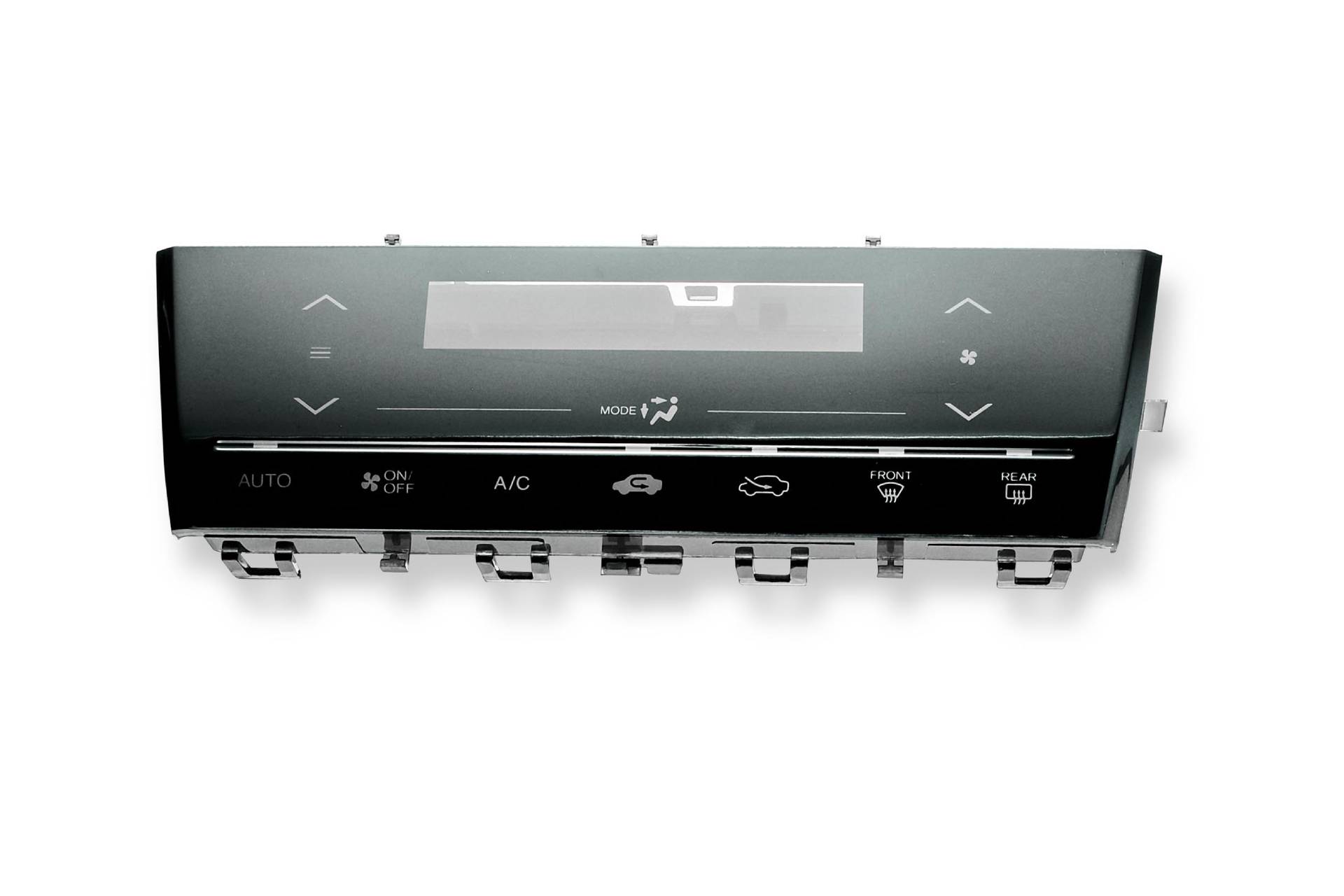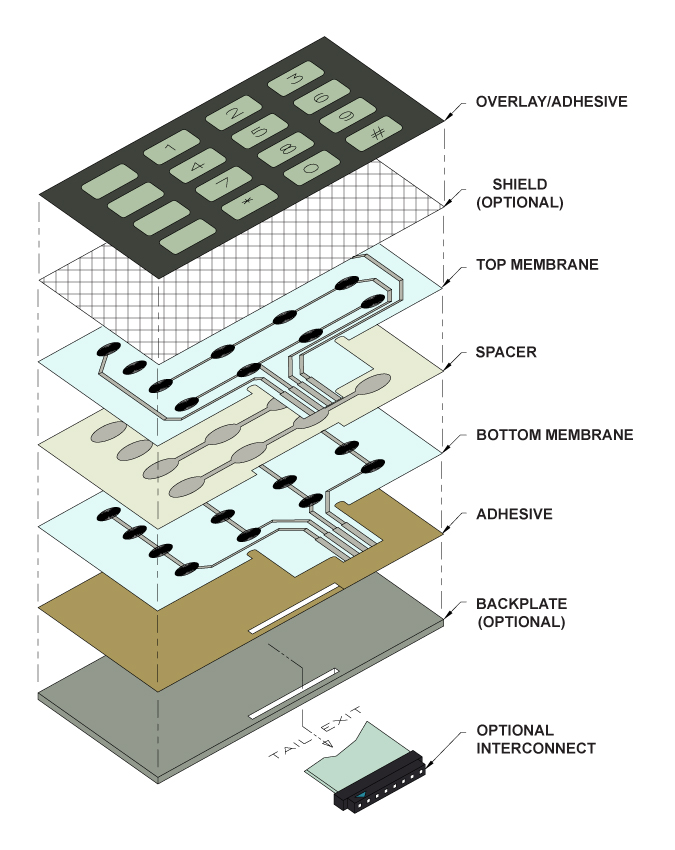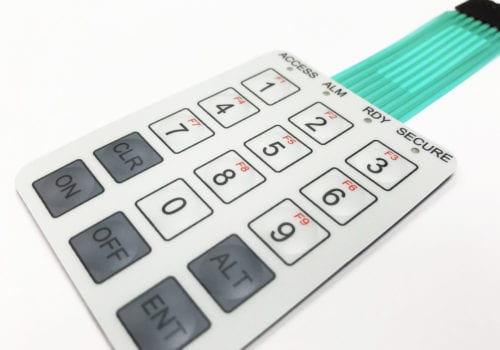Don’t overlook the value of working with a dependable membrane switch manufacturer for initial builds.
Don’t overlook the value of working with a dependable membrane switch manufacturer for initial builds.
Blog Article
Everything About Membrane Layer Switch: Understanding Its Layout and Performance
When you believe regarding the control interfaces in modern-day gadgets, membrane layer buttons commonly come to mind. These components are a lot more than just buttons; they mix style and capability effortlessly. Understanding exactly how they function and what makes them efficient can change your perspective on everyday electronics. There are nuances to their design and efficiency that you may not be mindful of. Let's discover what sets membrane switches over aside from various other control systems.
What Are Membrane Layer Switches?

Membrane buttons can also be tailored concerning shape, size, and graphics, permitting manufacturers to develop one-of-a-kind user interfaces tailored to particular products. Overall, membrane layer switches play a substantial function in boosting user experience across a vast range of applications.
Just How Membrane Switches Over Work
When you press a trick on a membrane layer switch, it turns on a simple yet reliable device. membrane switch manufacturer. The leading layer, typically made of versatile product, pushes down onto a conductive layer below it.
You'll notice that the tactile responses varies based upon the switch design, supplying either a soft click or a much more noticable action. When you launch the trick, the membrane go back to its initial position, resuming the circuit and quiting the signal. This procedure happens nearly instantaneously, making certain a responsive individual experience.
Membrane layer buttons are prominent due to their toughness and resistance to dirt and moisture, making them suitable for different applications, from home devices to medical devices. Understanding this procedure aids you value their extensive usage.
Key Elements of Membrane Switches
Recognizing the crucial parts of membrane layer buttons is essential for realizing their capability and style. The protective layer shields against ecological aspects and wear, prolonging the button's lifespan. By understanding these parts, you'll gain insight into how membrane layer changes run and their value in various applications.
Materials Made Use Of in Membrane Layer Change Style
The performance and toughness of membrane layer changes heavily depend upon the products utilized in their layout. You generally run into polyester and polycarbonate as main substratums due to their superb stamina and flexibility. These materials stand up to scratches and chemicals, making them optimal for requiring atmospheres.
The conductive layers often use silver or carbon, selected for their reliability and conductivity. membrane switch manufacturer. Silver supplies remarkable performance, while carbon is an economical option. For the overlay, you might take into consideration a matte or shiny coating, relying on your visual needs and customer experience
Adhesives play an important function also; they bond layers securely and assure long life. Ensure to select adhesives that withstand environmental factors like temperature level and moisture. Don't forget the relevance of an excellent printing strategy for graphics, as it improves both capability and visual allure. Picking the appropriate products will certainly ensure your membrane layer button stands the test of time.
Layout Factors To Consider for Membrane Buttons
While making membrane buttons, it's important to consider different elements that influence their performance and user experience. Start by concentrating on the layout and switch size; make certain they're user-friendly and very easy to navigate. Consider the responsive responses you intend to provide-- will customers require an obvious click or a softer touch? Additionally, think of the materials you'll use, as they'll affect durability and aesthetic appeals.
Validate your layout suits ecological variables, like dampness or temperature variations, which might influence efficiency. By meticulously considering these components, you'll produce a membrane layer switch that enhances functionality and contentment.
Applications of Membrane Layer Buttons
Membrane switches are versatile components discovered in different applications, from industrial equipment to customer electronics. You'll see their influence in makers that require durable interfaces and in devices that benefit from smooth styles. Understanding these applications assists you value the capability and functionality of membrane layer buttons in daily technology.
Industrial Devices Usage
When you're wanting to enhance the functionality of commercial equipment, membrane layer switches use a reliable remedy that integrates resilience with straightforward layout. These buttons are best for harsh settings, supplying resistance to dust, have a peek at these guys moisture, and chemicals. You'll locate them in control panels for producing devices, cooling and heating systems, and medical tools, where precision and responsiveness are essential. Their low account means they fit effortlessly into numerous tools, saving useful room while maintaining simplicity of use. With personalized graphics and backlighting options, you can develop an intuitive user interface for drivers, improving efficiency and security. Plus, their lengthy lifespan decreases upkeep prices, making click this them a wise financial investment for your industrial applications. Welcome membrane layer switches to enhance your procedures and improve overall efficiency.
Consumer Electronics Combination
In the domain name of customer electronic devices, membrane switches play a vital role in enhancing individual interaction and tool performance. Membrane buttons additionally ensure toughness and resistance to dirt and dampness, expanding the life expectancy of your electronics. By picking membrane buttons, you improve not just the capability but additionally the style of your gadgets, making everyday communications smooth and satisfying.
Advantages and Disadvantages of Membrane Layer Switches
While membrane layer switches supply a series of advantages, they also include some drawbacks that you must consider. One considerable benefit is their small design, making them excellent for space-constrained applications. They're also cost-efficient, offering a durable option with a low production expense. Furthermore, their smooth surface is simple to clean, improving health in environments like medical facilities.

However, there are drawbacks. Membrane switches can have a shorter lifespan compared to mechanical switches, particularly under hefty usage. They can likewise be much less tactile, which may influence customer responses throughout procedure. Additionally, if harmed, repairing them can be difficult and typically requires full replacement. Inevitably, their level of sensitivity to severe temperature levels and ecological problems may limit their performance in particular setups. Stabilizing these benefits and drawbacks will help you determine if membrane switches are the appropriate suitable for your job.
Often Asked Concerns
The Length Of Time Do Membrane Layer Switches Over Typically Last?
Membrane layer switches over usually last between 5 to 10 years, depending on usage and environmental problems. You'll intend to review elements like wear, direct go to my site exposure to wetness, and temperature variations to evaluate their longevity effectively.
Can Membrane Changes Be Custom-made for Particular Layouts?
Yes, you can customize membrane layer buttons to fit specific designs (membrane switch manufacturer). You'll have the freedom to pick colors, shapes, and designs that match your task's requirements, guaranteeing they blend flawlessly with your total aesthetic
What Is the Expense Variety for Membrane Layer Switch Production?
The expense range for membrane layer switch manufacturing generally drops between $1 and $10 per device, depending on elements like layout intricacy, amount, and materials. You can get quotes from makers to locate the best option.

Are Membrane Changes Water-proof or Immune?
Membrane switches can be created to be water-proof or immune, depending on products utilized and building and construction methods. If you need them for wet environments, ensure you define those demands throughout the style procedure.
Just How Do Membrane Changes Contrast to Typical Buttons?
Membrane switches are typically thinner and more versatile than standard buttons, using a smooth design. They're usually easier to clean and incorporate, yet could not offer the responsive comments you're used to with mechanical choices.
Verdict

Report this page